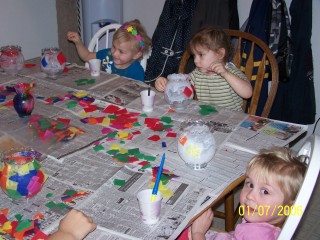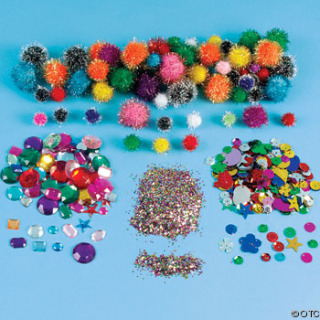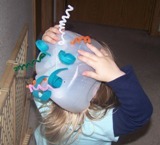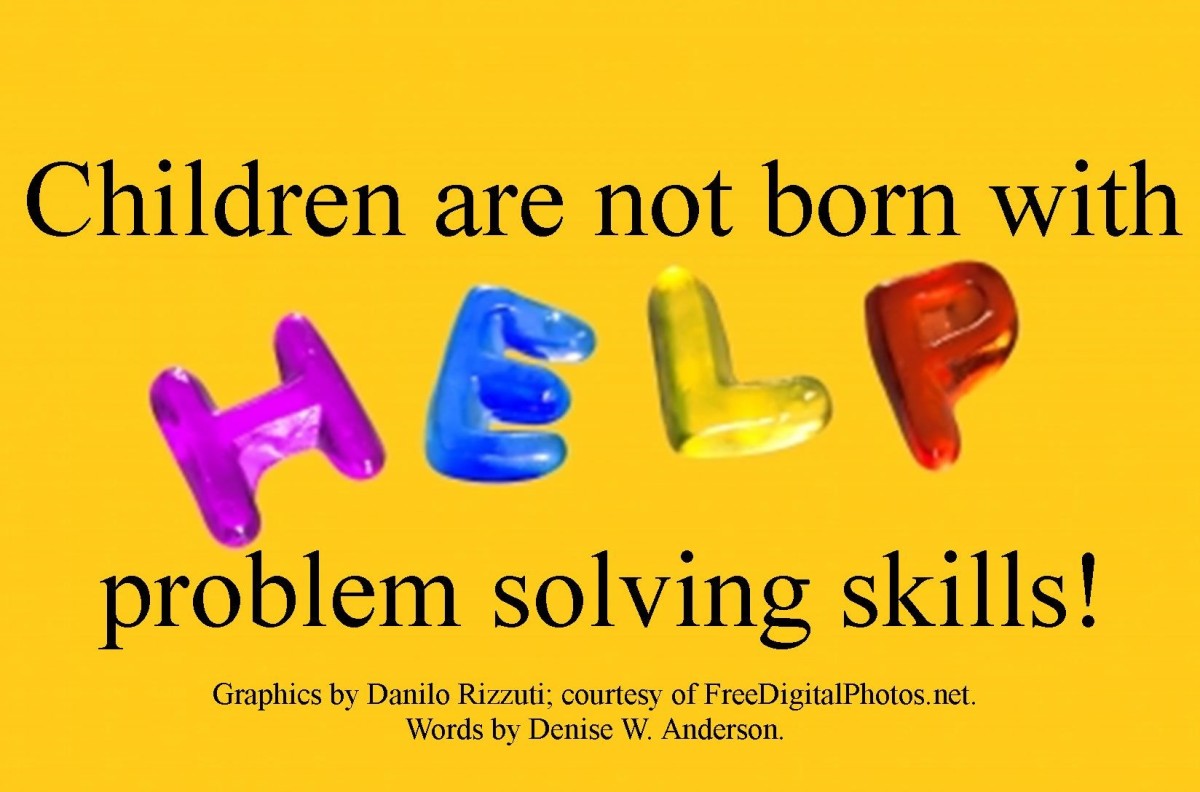Boosting Your Child's Imagination Improves Problem Solving Skills

Nurturing imagination in a child is vital because it promotes problem solving skills needed to become a successful adult. In order to encourage imaginative play, adults need to step back and let them explore with little expectations of the outcome. Children learn so much from trial and error, from engaging their senses, and learning techniques to help them stray from their lines of thinking.
If you think about the mind as a grassy field, and the pathways that thoughts make in the mind as pathways through the field, and you only take the same pathways every day, soon the less used ones become grown over and forgotten. Using simple games, you can keep your child’s pathways not only open, but increasing in number. As adults, they will be better at problem solving and less apt to give up at the first sign of failure, because they realize that there are more possibilities, or pathways, to take.
·

Free Crafting-
So many moms pour through craft books, print out pre-made pictures from the Internet, and buy little craft kits. Sure, they’re beautiful and creative, but they're controlled. Less mess, more follow the dotted line, and voila, there's your pom-pom turkey! There's nothing wrong with doing those things, but how far does it stretch the imagination? Give them an arsenal of art mediums to work with such as foam, pipe cleaners, colored pencils, paper punchies, stickers, glue, glitter, or any other little bits you can think of. Don’t give them any direction, just let them go. Usually the first time, they have no idea what to do, and might draw a picture and stick a piece of foam on it, but over time, the projects that come out of their minds are amazing! Full sculptures, hats, masks, and anything else you can think of! They not only get to exercise that imagination of theirs, but they learn that if something doesn't turn out the way you want it, it's okay to start over and try it a different way. It’s this thinking that promotes imagination and problem solving skills.
· Shared Stories-
If you have more than one school-aged child, or you are a teacher, daycare provider, or you just want to sit down and remember how fun it is to be a kid, this is a perfect brain boosting project. First, give every child a blank piece of paper and a pencil. If you are doing this one-on-one with your child, you get a piece, and your child gets a piece. Set a timer for fifteen seconds. During that time, have the children draw a picture or start a story. When the timer goes off, everyone must stop what they are doing and hand their paper to the left. Set the timer again, and it’s time to either continue the story or picture you have been passed. Repeat this until every person has the original story or picture that they started. If you are doing this alone with your child, pass it back and fourth five times before stopping. Read the stories to each other, or discuss the pictures. Another version of this game that’s perfect for road trips or camp fires is to have one person start a story, and take turns adding one sentence at a time. These exercises help children learn to break out of the box and expand their thinking.
· Picture Connections-
Another imagination booster is called Picture Connections. Open a magazine and take out three random pictures that aren't connected at all, then post them on the wall, or in a place where your child (ren) can see them. Give your child(ren) a few minutes to come up with a story that strings the pictures together. Come up with your own story as well. After writing them down, share stories, and talk about them.
It's amazing how far a child's mind will stretch when you loosen up the traditional control of exact directions and teach them how to think on a more expansive level. The world is magical to them, and it's our job to teach them how to hold on to that for as long as they can. Children who have developed the skills learned in these exercises are also much less stressed out when they are faced with an obstacle. Instead, they're more relaxed and have a bigger sense of accomplishment when they get excited about something they came up all by themselves.









